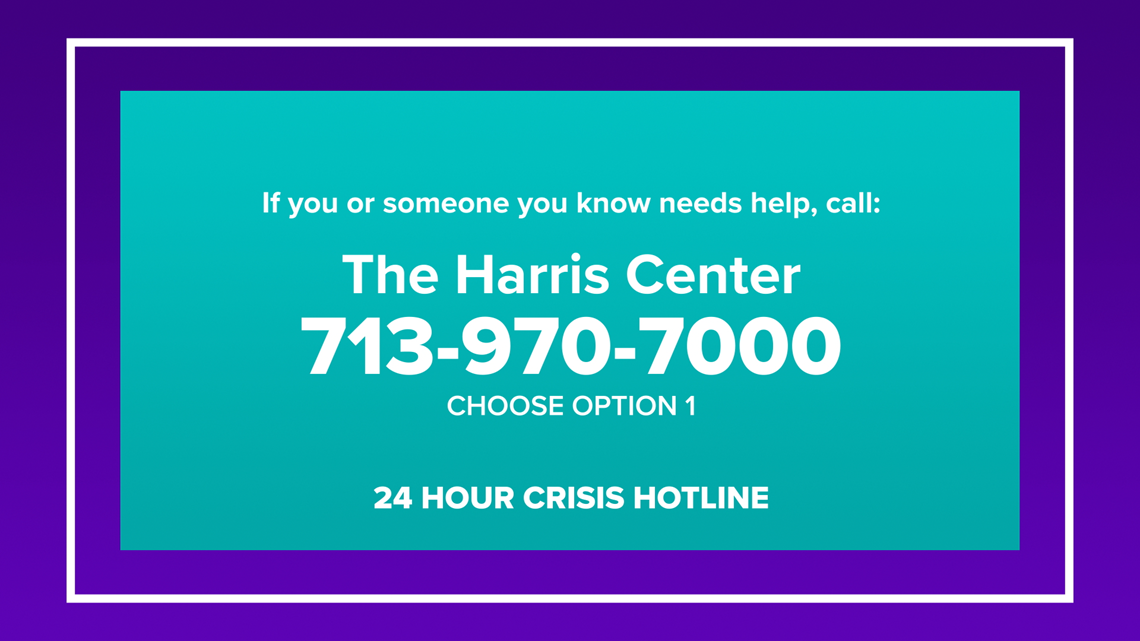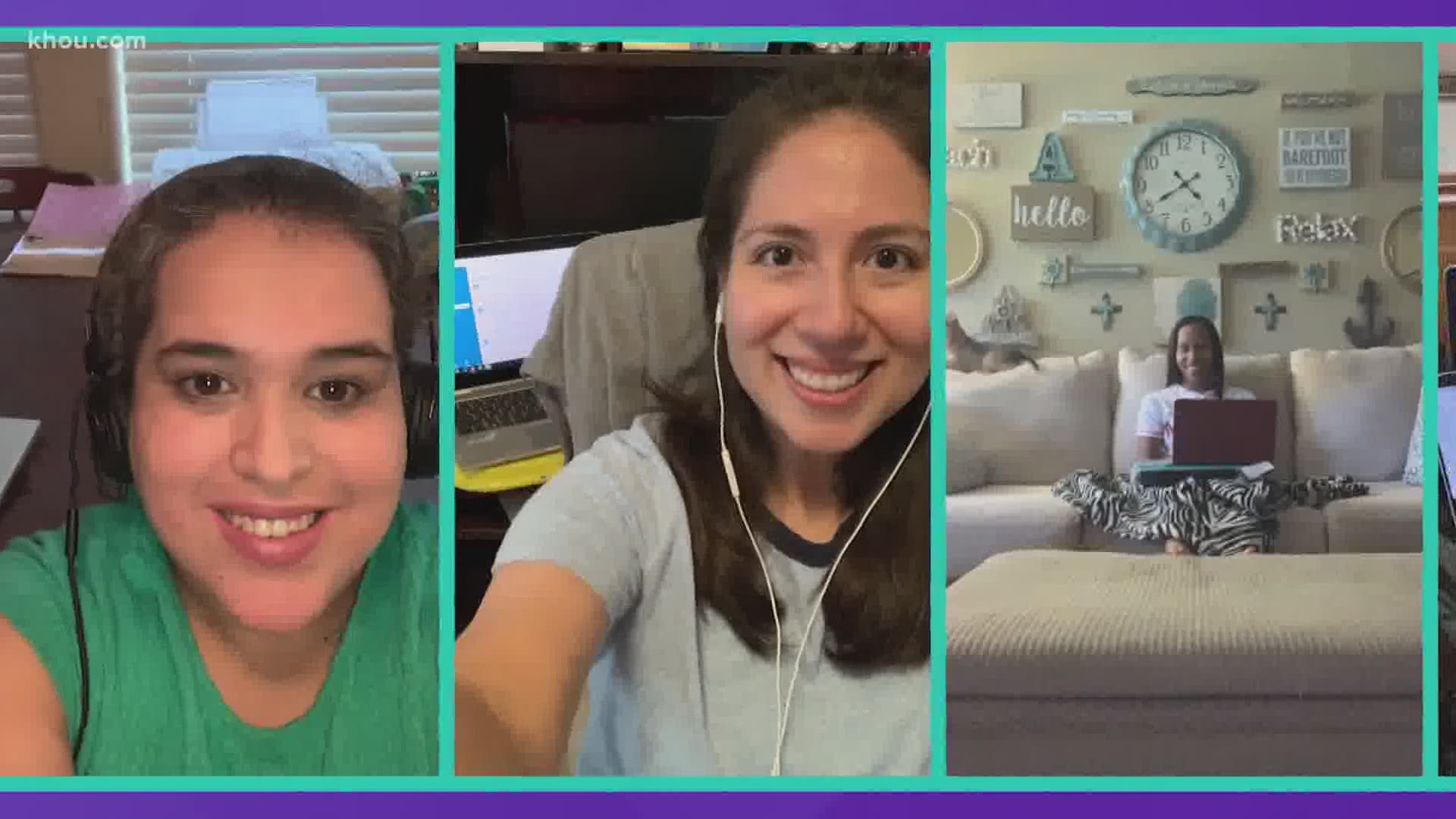HOUSTON — What is the Harris Center? What happens there, and why are we sharing that specific crisis hotline? This is National Suicide Prevention Week. We’re Standing For Houston by spotlighting resources that can help, like The Harris Center.
The Harris Center is the local mental health authority for Harris County. It provides a wide-range of help, including a 24-7 crisis line: (713) 970-7000, select option one.
“However you define crisis. Whatever that looks like for you,” said Jennifer Battle. “It’s a place where you can actually talk about those things without being judged and with it being normalized.”
Battle is the Director of Access for The Harris Center. She's been with the Harris Center for 17 years. She says when you call, you’ll talk to a Houstonian. Some staff are working at the office while others are taking calls from home. So they really do understand what might be happening in your world.
“These last few months have been really challenging. People are just anxious. Uncertainty is scary,” Battle said. "It is absolutely OK to feel like you are living in an unprecedented time. It is absolutely OK to feel like you don’t know what to do next.”
Battle said about 500 neighbors call for help daily. Every single one is asked if they’re having suicidal thoughts. WyKisha McKinney makes sure the team is trained to help everyone.
“We try to help them to restore hope in the best way that we possibly can,” McKinney said.
Teens are calling, too. The CDC reports an increase of suicidal ideations among teens and young adults. People who haven’t been able to build up a mental resiliency may struggle with finding hope right now.
From a June 2020 survey by the Centers for Disease Control & Prevention:
"The coronavirus disease 2019 (COVID-19) pandemic has been associated with mental health challenges related to the morbidity and mortality caused by the disease and to mitigation activities, including the impact of physical distancing and stay-at-home orders.* Symptoms of anxiety disorder and depressive disorder increased considerably in the United States during April–June of 2020, compared with the same period in 2019 (1,2). To assess mental health, substance use, and suicidal ideation during the pandemic, representative panel surveys were conducted among adults aged ≥18 years across the United States during June 24–30, 2020. Overall, 40.9% of respondents reported at least one adverse mental or behavioral health condition, including symptoms of anxiety disorder or depressive disorder (30.9%), symptoms of a trauma- and stressor-related disorder (TSRD) related to the pandemic† (26.3%), and having started or increased substance use to cope with stress or emotions related to COVID-19 (13.3%). The percentage of respondents who reported having seriously considered suicide in the 30 days before completing the survey (10.7%) was significantly higher among respondents aged 18–24 years (25.5%), minority racial/ethnic groups (Hispanic respondents [18.6%], non-Hispanic black [black] respondents [15.1%]), self-reported unpaid caregivers for adults§ (30.7%), and essential workers¶ (21.7%). Community-level intervention and prevention efforts, including health communication strategies, designed to reach these groups could help address various mental health conditions associated with the COVID-19 pandemic."
McKinney offers parents this advice: “Even saying, hey, let’s put this text line into your phone. Let’s put the National Suicide Prevention Lifeline into your phone. Let’s put these different resources here, so if you’re not comfortable with talking with Mom, you have someone else you can talk to,” McKinney said. “Give them permission to go to someone else that they trust and that can actually help them.”


The Harris Center will walk a person through coping techniques while also making sure to celebrate the call itself.
“It takes such strength to pick up the phone whenever you’re feeling like there’s nothing left for you to do,” Battle said.
Your courage to ask for help will be met with compassion and empathy. All you have to do is call.
What if you’re not in a crisis, but the pandemic has you stressed?
The State of Texas launched a COVID-19 support line in March. About 7,000 Texans have already called for help. From concerns about getting sick to anxiety about virtual learning, if it’s COVID-19-related, call 1-833-986-1919

